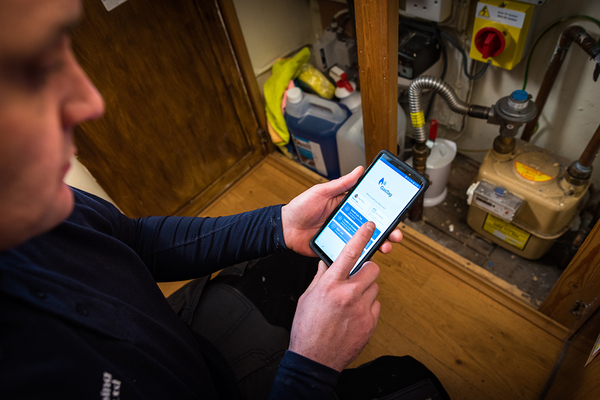It is time for a culture of compliance
The whole organisation needs to be responsible for gas safety, says Russell Thompson (picture: Getty)
Article written by:

First and foremost, the housing sector should be about keeping our customers safe and our organisations legal.
In recent years, we have seen ever-increasing scrutiny of how the sector manages gas safety, particularly of how housing associations achieve and maintain compliance. This should be expected, given that gas is often an association’s Achilles heel.
We have seen several organisations receive regulatory judgements that have resulted in downgradings. This should have firmly made the sector realise how important this issue is – and I think it has. I believe an understanding of the need for 100% compliance with gas safety standards is spreading, not just within gas and maintenance teams but throughout organisations.
Maintaining compliance
At Thirteen Group, we have been recording performance at 100% every day for nearly three years. I receive a daily report that sets out the next 30 days and how many days it is until the next Landlord Gas Safety Record (LGSR) expires. This allows me to scrutinise performance further and ask timely questions about things such as no access and resource planning.
Achieving compliance is not the full story, of course. It is about developing the right culture – one in which compliance is not only achieved but also maintained, day in, day out.
Embedding compliance – and in particular, a safety culture – comes through having an approach that is regularly tested and audited to ensure it remains fit for purpose and relevant. A good example is data integrity testing – checking information for accuracy, integrity and reliability.
You need to keep testing the culture, the processes and the communication, and then audit what has been done. This is the only way to keep learning and developing and ensure continuing compliance.
But while culture is critical, it can only take you so far. What we can’t forget is the need to ensure that we have competent people managing and delivering the service.
Team members must all be competent and constantly tested and audited to ensure that competency is maintained. After all, qualifications alone do not equal competence, and the need to evidence and maintain competence is vital. That needs investment and the right levels of training and development – both of which should be continuous processes.
Training and development must also extend beyond the gas and maintenance team. It is a mistake to believe responsibility for gas compliance could or should rest solely with them.
The reality is that it is the responsibility of the whole organisation to support this mission, helping ensure that all statutory obligations are met and safety is maintained. Everyone needs to be involved to make compliance work successfully and mitigate the organisation’s risks.
That is why we at Thirteen have spent time talking to staff from all areas of the organisation about gas compliance. We have discussed what it means and how all colleagues can help in meeting our responsibilities in this crucial area.
It is short-sighted and naïve to think you can just leave it to the gas team. Collaboration and communication with colleagues and customers are key factors in maintaining and developing understanding and ownership of compliance.
Given the high levels of risk associated with gas and all compliance, that message – and the whole process and culture – needs to be owned and communicated from the board and the chief executive down throughout the organisation.
At Thirteen, the organisation, not just a team, is responsible for gas safety and compliance. Keeping your board aware of performance and any issues that arise is critical, which is why we have amended our assurance policy so our board members are clear on escalation processes, when they will receive information and updates, and when they would want to notify the regulator.
Smarter ways of working
The growth of technology such as smartphones and tablets and the ability to create electronic rather than digital reports have led to smarter ways of working and increasingly the collection of information in real time. We now even see organisations using data to predict specific customer behaviour that helps understand the best time to make an appointment to update an LGSR.
Meanwhile, developments in boiler manufacturing technology are providing the opportunity to monitor boilers remotely and understand a problem before the customer realises it; a response can then be mobilised without even a phone call or an email from the customer. Many organisations are offering appointments later in the evening or on Saturdays for those customers who are out at work during the day – another way to avoid situations in which it is impossible to access a property.
At Thirteen, we now automatically escalate to the housing team when it has been impossible to obtain access on two separate occasions. It is just one way in which we have been working really hard at developing our approach to gas safety and compliance.
We also text customers with appointment reminders, have introduced an integrated IT system and issue electronic gas safety inspection forms to evidence compliance more easily. We are also carrying out work in progress audits to assess competency and compliance, as well as internal and external audits for the coaching we give our gas team.
It is all intended to ensure that we offer safe, legally compliant properties to our residents – which I think we can all agree should be the central aim of organisations’ work across the sector.
Russell Thompson, executive director of property services, Thirteen Group









